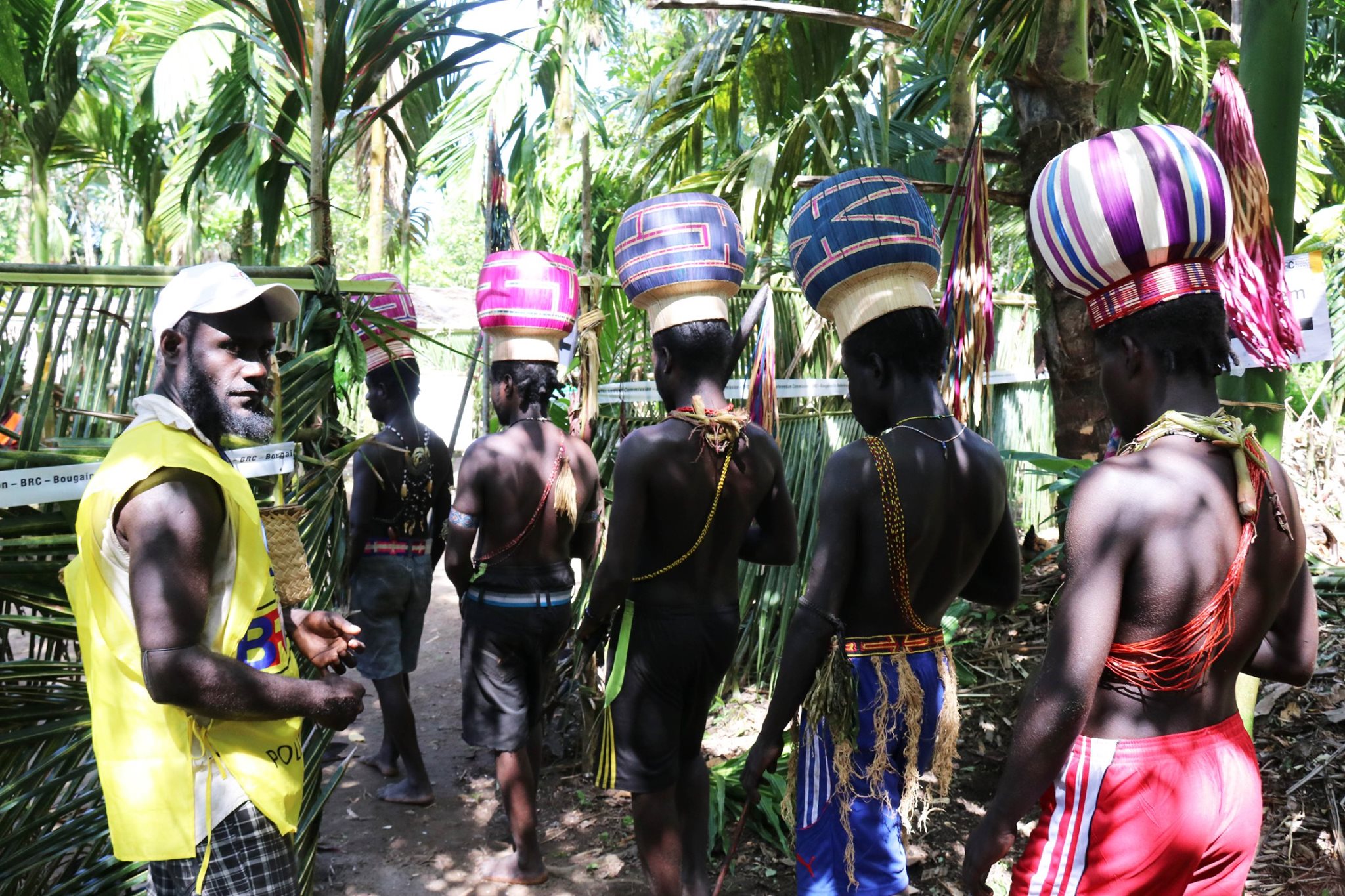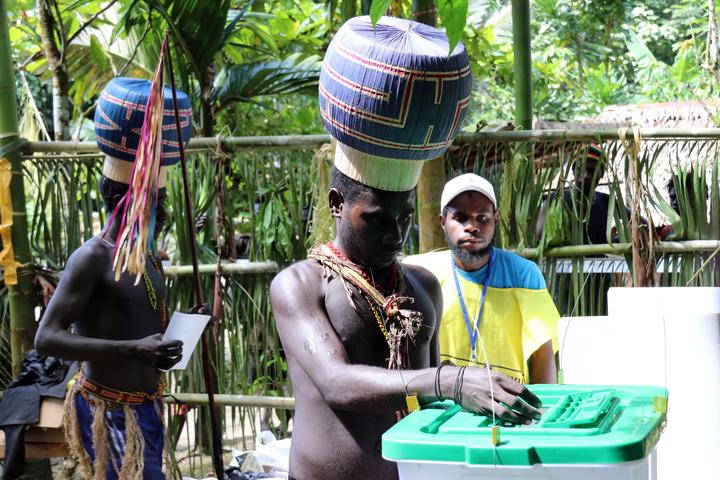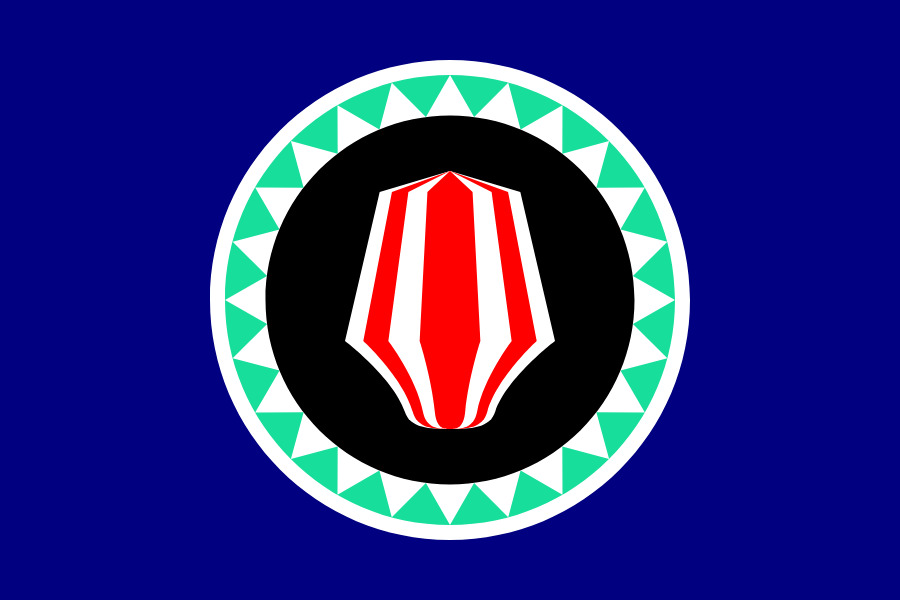Table of Contents
Staying in contact
Staying in contact: Colonial encounter as constitutive fiction
Ryan Schram
University of Sydney
February 11, 2021
Abstract: Maclean (1998) has argued that the tenuously shared sovereignty of local communities and the national state in Papua New Guinea owes to the simultaneously systematic yet shoestring colonial governance of the country, and particularly the method of government by patrol that was established after the second World War. For Maclean, the closure of the frontier was never more than “barbed connections to a surface” (86) In this paper, I argue that the contact between patrol officer and community, and the risks to the identities that it entails for both parties, is not only the conditions for political participation in colonial PNG but the constitutive fiction of the postcolonial PNG state. As citizens, people of PNG are required to encounter each other as others, and to be ethnographers of each other and themselves.
Paper and slides for a presentation in Strange intimacies: A Festschrift conference in honor of Neil Maclean at the University of Sydney, February 19, 2021. Please do not quote or cite without permission of the author.
Available at http://anthro.rschram.org/talks/staying.
Initiation into nation
During the independence referendum held in Bougainville in 2019, men undergoing a secret initiation were invited to vote at a special all-male polling place to preserve the sanctity of the upe they wear continuously during initiation.
Figure 1: A line of men wearing upe hats enter the all-male polling place established by the Bougainville Referendum Commission for the 2019 independence referendum at Kunua on November 29, 2019 (“Upes Come Out to Cast Their Vote” 2019).
Upes go in to vote in order to come out to vote
The upe-wearing initiates interrupted their period of seclusion, but they voted at a polling place within an enclosure of its own, thus maintaining their seclusion.
Figure 2: A man wearing an upe casts a ballot in the 2019 Bougainville independence referendum at the all-male polling place at Kunua on November 29, 2019 (“Upes Come Out to Cast Their Vote” 2019).
Secret and public, sacred and secular
The all-male polling place for upe was photographed by a Bougainville Referendum Commission press officer, who distributed the photos of the men wearing upe to national and international media.
The upe hat, of course, is already a well-known, highly visible symbol of Bougainville. It appears on the flag of Bougainville, for instance.
Figure 3: The flag of Bougainville (“Bougainville Flag, Emblem and Anthem (Protection) Act 2018” 2018, sched. 1)
Does PNG have two publics?
According to Ekeh (1975), European colonialism in Africa has led to independent states with two distinct publics:
- a primordial public in which membership is limited, and based on the obligations among members.
- a civic public in which membership is based on individual rights, but according to Ekeh, lacks a set of common political norms and values.
Maclean (1998) has shown that the process of colonial incorporation itself rests on a fundamental duality of the colonial encounter.
Hence, while others have argued for two publics in PNG, I will argue for the two-ness of the postcolonial public.
The fictional frontier
We may draw several conclusions so far:
- The colonial frontier is not a historical fact; it is the constitutive fiction of the contemporary PNG state.
- Politics in PNG takes place as if there are two separate publics.
- On one level, the fiction of encounter opens the possibility for public participation that embraces radical otherness. No one member of the public can assume that she is “at home” as Honig (1996) might say.
- Yet such a radically open democracy would also need to establish its legitimacy, and PNG when appeals to the constitutive myth of encounter, it also attributes the fictional kiap the status of a lawgiver who imposes a new constitutional order from the outside.
PNG rituals of citizenship take place in an ethnographic present and a colonial past
- The constitutive fiction of encounter is reinforced by rituals of citizenship. Much as Americans recite the preamble of the US Constitution and Declaration of Independence on July 4th, people of PNG play the parts of kiap and luluai for each other in everyday situations.
- Yet if the rituals of US citizenship are a “simultaneous affirmation of the absence of history and the presence of the past” (Norton 1993, 15), then the rituals of PNG citizenship dehistoricize the kiap while representing his alters as empirical presences of an imaginary precolonial past.
- People in the US imagine that they sign constitutions; people in PNG imagine they write an ethnography of themselves.
When the polls come to you
During the two-week polling period of general elections in PNG, it is common for newspaper reporters and photographers to document the transportation of ballots to all parts of the country, by any means necessary.
- By truck (“Returning Polls” 2002)
- By boat (Kenneth 2007b)
- By helicopter (Palme 1997; Rheeney 2007; Thomas 2002)
- On foot (Kenneth 2002, 2007a; Wemuru 2017b)
In the 2017 election, a reporter also captured poll workers taking a ballot from a village to the home of a single voter who was unable to walk to the polling place (Wemuru 2017a).
Ethnographic citizenship
- One has a rights as a citizen only if one helps to produce ethnographic knowledge of oneself for others.
References
Bougainville Flag, Emblem and Anthem (Protection) Act 2018. 2018. https://www.abg.gov.pg/uploads/acts/18-03_Bougainville_Flag,_Emblem_and_Anthem_(Protection)Act2018.pdf.
Ekeh, Peter P. 1975. “Colonialism and the Two Publics in Africa: A Theoretical Statement.” Comparative Studies in Society and History 17 (1): 91–112. https://www.jstor.org/stable/178372.
Honig, Bonnie. 1996. “Difference, Dilemmas, and the Politics of Home.” In Democracy and Difference: Contesting the Boundaries of the Political, edited by Seyla Benhabib, 257–77. Princeton, N.J.: Princeton University Press.
Kenneth, Gorethy. 2002. “Foot Power.” The Papua New Guinea Post-Courier, June, 1.
———. 2007a. “No Aircraft, No Problem - We’ll Carry Them.” The Papua New Guinea Post-Courier, July, 1.
———. 2007b. “Catching up with News in the Bush!” The Papua New Guinea Post-Courier, July, 3.
Maclean, Neil. 1998. “Mimesis and Pacification: The Colonial Legacy in Papua New Guinea.” History and Anthropology 11 (1): 75–118. https://doi.org/10.1080/02757206.1998.9960908.
Norton, Anne. 1993. Republic of Signs: Liberal Theory and American Popular Culture. Chicago: University of Chicago Press.
Palme, Robert. 1997. “Like Gold…” The Papua New Guinea Post-Courier, June, 1.
“Returning Polls.” 2002. The Papua New Guinea Post-Courier, June, 6.
Rheeney, Alex. 2007. “Aussie Copter Pilots Get on-the-Spot Clearance.” The Papua New Guinea Post-Courier, July, 1.
Thomas, Theo. 2002. “All Aboard…” The Papua New Guinea Post-Courier, June, 2.
“Upes Come Out to Cast Their Vote. Bougainville Referendum Commission.” 2019. November 29, 2019. http://bougainville-referendum.org/upes-come-out-to-cast-their-vote/.
Wemuru, Sylvester. 2017a. “This May Be My Last Vote.” The Papua New Guinea National, July, 4.
———. 2017b. “Tough Going.” The Papua New Guinea National, July, 1.
Similar pages
- Bougainville (15.43%)
- bougainville (24.77)
- 0 (2.37)
- contemporary (1.79)
- slides (1.67)
- 1 (1.25)
- Talks and presentations (14.02%)
- talks (27.17)
- presentation (17.54)
- staying (7.88)
- slides (6.67)
- citizenship (5.69)
-
- citizenship (22.75)
- democracy (21.04)
- politics (20.49)
- political (19.65)
- public (18.33)
- Welcome to the Anthrocyclopaedia (9.75%)
- talks (33.96)
- presentation (17.54)
- sydney (16.08)
- university (9.65)
- slides (8.34)



